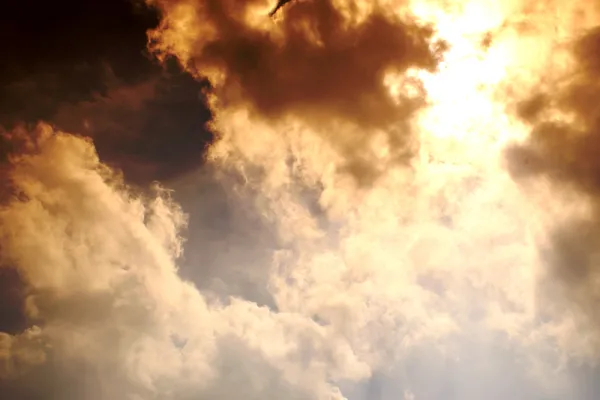Global Warming: A View From the Future
Research & Inquiry

Published September 2, 2015
The year is 2393, and the world is almost unrecognizable. Clear warnings of climate catastrophe went ignored for decades, leading to soaring temperatures, rising sea levels, widespread drought and—finally—the disaster now known as the Great Collapse of 2093, when the disintegration of the West Antarctica Ice Sheet led to mass migration and a complete reshuffling of the global order.
Writing from the Second People’s Republic of China on the 300th anniversary of the Great Collapse, a senior scholar presents a gripping and deeply disturbing account of how the children of the Enlightenment—the political and economic elites of the so-called advanced industrial societies—failed to act, and so brought about the collapse of Western civilization.
That’s the premise behind this year’s first-year reading, The Collapse of Western Civilization: A View from the Future, by Naomi Oreskes and Eric M. Conway. The book is science fiction, of course—but it’s perhaps not that far-fetched. The premise: the world’s elites knew about the danger of climate change but didn’t act to prevent it.
Oreskes will be on campus Thursday, Sept. 3, to talk about her book—and her broader work in fighting climate change—with Smith students, faculty, staff and members of the general public. The talk, which takes place at 7 p.m. in John M. Greene Hall, is open to the public at no charge, as is a book signing that follows.
Oreskes’ visit provides an opportunity to hear from a science historian who’s been fearless about asserting scientists’ important role at the heart of a contentious and politicized debate.
 Originally trained as a geologist (she began her undergraduate work at Brown University and then transferred to the Royal School of Mines at Imperial College in London), Oreskes worked in the early 1980s as a field geologist in the Australian outback, researching the geology of what eventually became one of the world’s largest uranium mines.
Originally trained as a geologist (she began her undergraduate work at Brown University and then transferred to the Royal School of Mines at Imperial College in London), Oreskes worked in the early 1980s as a field geologist in the Australian outback, researching the geology of what eventually became one of the world’s largest uranium mines.
Later, her focus turned away from minerals and toward understanding scientific consensus and dissent. In 2004, when the widespread public perception was that scientists disagreed about causes for global warming, Oreskes made headlines with the publication of an article based on a simple premise: She counted the number of published scientific papers on climate change and found unanimous scientific agreement that global warming existed and that human activity was a primary cause.
Her findings were not uniformly received; she was widely criticized on the Internet, and she has even been threatened with lawsuits. But that pushback has done little to dissuade Oreskes from making her scholarship easily accessible to a mainstream audience. The 2004 essay that caused the stir, “The Scientific Consensus on Climate Change,” was cited by Vice President Al Gore in the Academy Award-winning documentary “An Inconvenient Truth,” and this year’s “Merchants of Doubt” documentary was based on Oreskes’ and Conway’s 2010 book by the same name.
“Formally,” The New York Times said in a June profile of Oreskes, “she is a historian of science. Informally, this diminutive woman has become a boxer, throwing herself into a messy public arena that many career-minded climate scientists try to avoid.”
While at Smith, Oreskes will meet with members of the first-year reading selection committee, as well as faculty who will join her in conversation at the 7 p.m. event.
Oreskes has served since 2013 on the faculty at Harvard, where she is professor of the history of science and affiliated professor of earth and planetary sciences. Her Collapse of Western Civilization co-author, Erik M. Conway, is a historian of science and technology who works at the California Institute of Technology.